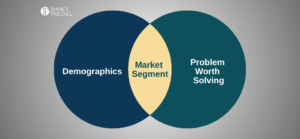A friend who runs a business recently changed her pricing (without talking to me first, ugh.) One thing she did was add a $10 service fee on all invoices over $100. That felt wrong, so I asked why. She said, “the processing fees are unbearable.”
First, note that she is trying to cover her costs. Covering costs is good, but costs shouldn’t drive pricing. She has a few other costs that each exceed the cost of processing a large transaction but she doesn’t charge a fee for them.
I suggested she bundle this fee into her price. She should raise prices, and then offer a discount or a program for anyone that pays using a technique that doesn’t cost her money (e.g. cash, Zelle, ACH).
But that got me thinking. When do fees make sense? The airlines wouldn’t be profitable if it weren’t for the myriad fees they charge (at least pre-Covid). Destination hotels charge “resort fees” (which nobody likes).
It seems fees make sense when these two conditions exist:
- Buyers are making a which one decision. They are deciding between your product and a competitor’s product. Price is an important factor in this decision so showing a low price may win more business.
- The fee is optional. Some people pay it (and get something for it) and others don’t. Checked luggage or rescheduling fees for airlines follow this. Resort fees do not. They are not optional. This is possibly why we are (I am) angrier at resort fees than airline fees.
It needs to seem fair to the buyers. Fees for checked luggage seem fair (it didn’t when they first started) but resort fees feel less fair. We have a choice whether or not to check luggage, but we don’t have a choice on whether or not to pay a resort fee. When we are unfair to our customers they tend to not like us and it damages any relationship we may be trying to build.
My friend’s business is a long-term relationship business. The low price plus a fee may make sense when winning new customers, but once she has them in her program, they won’t leave for a few dollars. Having a fee on something, anything, may help her win new customers by making it appear she has a lower price but it won’t help her in building the relationship she wants with her clients. In her business, most invoices are over $100, meaning her customers don’t really have a choice on whether or not to pay the fee.
As a consumer, start looking at fees that get added on after you’ve made the purchase decision. Which ones feel the most unfair? I’ll bet it’s the ones where you didn’t have a choice.
What do you think? When should companies use fees? My suggestion is to be careful.
Now, go make an impact!















